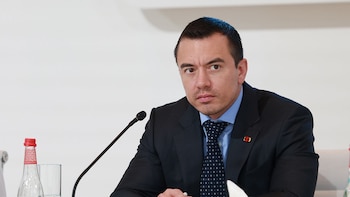
(ATR) A clear majority of Olympic athletes want to keep the podium, field of play and official ceremonies free from any kind of protest or demonstration.
Keeping the status quo for this type of athlete expression was one of the recommendations in regard to Rule 50 resulting from an extensive qualitative and quantitative consultation process started in June 2020 by the IOC Athletes’ Commission (AC).
In the quantitative study, athletes said that it is not appropriate to demonstrate or express their views on the field of play (70 percent), at official ceremonies (70 percent) or on the podium (67 percent).
The respondents were most likely to believe it appropriate for athletes to demonstrate or express their individual views in the media, in press conferences and in the mixed zones.
More than 3,500 athletes representing 185 National Olympic Committees and all 41 Olympic sports took part in the survey, which was gender equal.
This position was also widely expressed in the qualitative consultation, the majority argument being the need to ensure that athletes and their special moments are respected, and that the focus of the Olympic Games remains on the celebration of the athletes performances, sport and the Olympic values. However, some athlete representatives took a different view, using freedom of expression and freedom of speech as their argument, and felt that this outweighed the other arguments.
In the end, it was decided to "Preserve the podium, FoP and official ceremonies from any kind of protests and demonstrations, or any acts perceived as such".
Other recommendations did call for changes to Rule 50 ofthe Olympic Charter, which provides a framework to protect neutrality of sport and the Olympic Games. Included in the list is a call to clarify sanctions against those who do protest in places where they are not allowed.
The IOC Executive Board fully supports all of the recommendations.
"The goal of this wide outreach was to engage with athletes and hear their thoughts on existing and new opportunities to express their views at the Olympic Games as well as outside Games time," Kirsty Coventry, chair of the IOC AC said.
"We want to amplify the voices of athletes, and find more ways to support the values of the Olympic Games and what sport stands for. This consultation was a very important process for us and is part of the ongoing dialogue with the athlete community. We are delighted that the IOC EB fully supported our proposals."
For increasing opportunities for athletes’ expression during the Olympic Games, the recommendations include highlighting the importance of solidarity, unity and non-discrimination at the opening and closing ceremonies; adapting the Olympic Oath to include messaging on inclusion and non-discrimination; incorporating collective messaging into the Olympic Village "look" to celebrate Peace, Respect, Solidarity, Inclusion and Equality; and leveraging the Olympic Truce Mural in the Village so athletes can show their support of the Olympic Truce ideals and increase its reach through social media campaigns and athlete apparel.
To increase athletes’ expression outside the Games, it is recommended that a platform, including Athlete365, be provided so that they can highlight topics that are important to them.
To provide clarity on sanctions, it is recommended that breaches of the current paragraph 2 of Rule 50 should be examined on a case-by-case basis to ensure due process and the proportionality of sanctions. The IOC AC also recommends that the Legal Affairs Commission clarify the range of sanctions that would be imposed for a breach of the Rule, taking into consideration the context of each individual case.
The IOC AC also recommends that more information around Rule 50 should be provided and that Rule 50 should be restructured into two rules while increasing clarity of Rule 50.2.
The conclusions presented today by the IOC AC will be taken into account beginning with Tokyo 2020. The proposed change of Rule 50 of the Olympic Charter will be addressed, taking the evaluation of the implementation at one edition of the Olympic Games (Tokyo 2020) and one edition of the Olympic Winter Games (Beijing 2022) into account.
Written by Gerard Farek
For general comments or questions,click here.
Your best source of news about the Olympics is AroundTheRings.com, for subscribers only.
Últimas Noticias
Utah’s Olympic venues an integral part of the equation as Salt Lake City seeks a Winter Games encore
Utah Olympic Legacy Foundation chief of sport development Luke Bodensteiner says there is a “real urgency to make this happen in 2030”. He discusses the mission of the non-profit organization, the legacy from the 2002 Winter Games and future ambitions.

IOC president tells Olympic Movement “we will again have safe and secure Olympic Games” in Beijing
Thomas Bach, in an open letter on Friday, also thanked stakeholders for their “unprecedented” efforts to make Tokyo 2020 a success despite the pandemic.

Boxing’s place in the Olympics remains in peril as IOC still unhappy with the state of AIBA’s reform efforts
The IOC says issues concerning governance, finance, and refereeing and judging must be sorted out to its satisfaction. AIBA says it’s confident that will happen and the federation will be reinstated.

IOC president details Olympic community efforts to get Afghans out of danger after Taliban return to power
Thomas Bach says the Afghanistan NOC remains under IOC recognition, noting that the current leadership was democratically elected in 2019. But he says the IOC will be monitoring what happens in the future. The story had been revealed on August 31 in an article by Miguel Hernandez in Around the Rings

North Korea suspended by IOC for failing to participate in Tokyo though its athletes could still take part in Beijing 2022
Playbooks for Beijing 2022 will ”most likely” be released in October, according to IOC President Thomas Bach.




